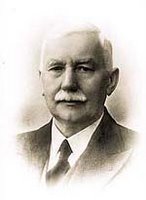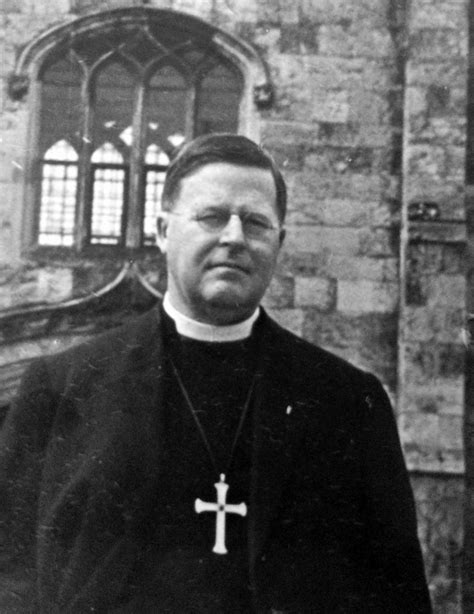A Quote by John Owen
The purpose of our holy and righteous God was to save his church, but their sin could not go unpunished. It was, therefore, necessary that the punishment for that sin be transferred from those who deserved it but could not bear it, to one who did not deserve it but was able to bear it.
Related Quotes
The magnitude of the punishment matches the magnitude of the sin. Now a sin that is against God is infinite; the higher the person against whom it is committed, the graver the sin-it is more criminal to strike a head of state than a private citizen-and God is of infinite greatness. Therefore an infinite punishment is deserved for a sin committed against Him.
St. Augustine and St. Thomas define mortal sin to be a turning away from God: that is, the turning of one's back upon God, leaving the Creator for the sake of the creature. What punishment would that subject deserve who, while his king was giving him a command, contemptuously turned his back upon him to go and transgress his orders? This is what the sinner does; and this is punished in hell with the pain of loss, that is, the loss of God, a punishment richly deserved by him who in this life turns his back upon his sovereign good.
Only few know what righteousness is. It is righteous to suffer for your own foolishness. When you sin, it is righteous to bear the consequences of your sin without complaining. Saying what you mean and what is on your heart when you deal with other people, that is righteous. One who hungers and thirsts for righteousness will be filled-and being filled with righteousness is something very great.
The Church is holy, although there are sinners within her. Those who sin, but who cleanse themselves with true repentance, do not keep the Church from being holy. But unrepentant sinners are cut off, whether visibly by Church authority, or invisible by the judgement of God, from the body of the Church. And so in this regard the Church remains holy.
Worship is the submission of all our nature to God. It is the quickening of conscience by His holiness; the nourishment of mind with His truth; the purifying of imagination by His Beauty; the opening of the heart to His love; the surrender of will to His purpose - and all of this gathered up in adoration, the most selfless emotion of which our nature is capable and therefore the chief remedy for that self-centeredness which is our original sin and the source of all actual sin.
God really does take our work seriously: It is wrong, it is a sin, to accept or remain in a position that you know is a mismatch for you. Perhaps that's a form of sin you've never considered - the sin of staying in the wrong job. But God did not place you on the earth to waste away your years in labor that does not employ his design or purpose for your life, no matter how much you may be getting paid for it.
When we struggle for human rights, for freedom, for dignity, when we feel that it is a ministry of the church to concern itself for those who are hungry, for those who have no schools, for those who are deprived, we are not departing from God's promise. He comes to free us from sin, and the church knows that sin's consequences are all such injustices and abuses. The church knows it is saving the world when it undertakes to speak also of such things.
Those who understand the cross increasingly see their sin as God does, and therefore begin to feelabout sin as does God. We begin to mourn for and hate it. In other words, at the cross God becomes larger and we become smaller. This separation is at the heart of the fear of God. This "fear" opens God's wisdom to us because only in light of God's immensity can I see the importance of living for the right end, his glory. And only in the light of my smallness can I feel overawed by the means he used to save me, his cross.





































